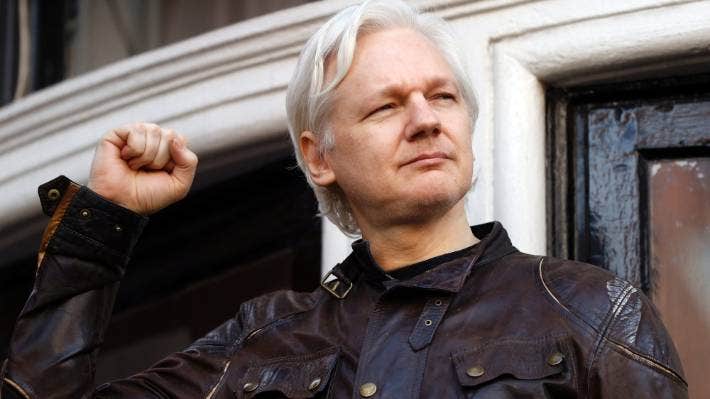
A British judge has rejected the United States’ request to extradite WikiLeaks founder Julian Assange to face espionage charges, saying it would be “oppressive” because of his mental health.
District Judge Vanessa Baraitser said Monday Assange was likely to commit suicide if sent to the US
The US government said it would appeal the decision.
US prosecutors have indicted Assange on 17 espionage charges and one charge of computer misuse over WikiLeaks’ publication of leaked military and diplomatic documents a decade ago. The charges carry a maximum sentence of 175 years in prison.
Julian Assange’s conversations in the latter part of his 7-year stay at the Ecuadorian Embassy in London were systematically bugged, even in the toilet, a London court heard on Wednesday.
In written statements at Assange’s extradition hearing, two anonymous witnesses who worked for a Spanish firm with a security contract at the embassy said the WikiLeaks founder faced an intensifying bugging operation from 2017 onwards after Donald Trump became US president.
Judge Vanessa Baraitser on Tuesday granted the two witnesses anonymity amid fears for their safety. Lawyers acting on behalf of the US government did not contest the submission of the anonymous statements but said they were largely irrelevant to the matter under consideration in London’s Old Bailey court.
The two witnesses alleged that David Morales, the director of Spanish security firm Undercover Global, switched to “the dark side” and had instructed the installation of cameras with sophisticated audio capabilities to secretly record Assange’s meetings at the embassy, particularly those with his lawyers.
Lawyers for the 49-year-old Australian argue that he was acting as a journalist and is entitled to First Amendment protections of freedom of speech for publishing leaked documents that exposed US military wrongdoing in Iraq and Afghanistan.
The judge rejected claims by the defence that Assange was protected by free-speech guarantees, saying his “conduct, if proved, would therefore amount to offences in this jurisdiction that would not be protected by his right to freedom of speech.”
But she said Assange suffered from clinical depression that would be exacerbated by the isolation he would likely face in US prison.
The judge said Assange had the “intellect and determination” to circumvent any suicide prevention measures the authorities could take.
In closing submissions, Assange’s legal team accused the United States of an “extraordinary, unprecedented and politicized” prosecution that sought to “criminalize obtaining and publishing information relating to `national security.”’
The defence argued that extradition threatens Assange’s human rights because he risks “a grossly disproportionate sentence” and detention in “draconian and inhumane conditions” that would exacerbate his severe depression and other mental health problems.
Lawyers for the US government deny that Assange is being prosecuted merely for publishing the leaked documents, saying the case “is in large part based upon his unlawful involvement” in the theft of the diplomatic cables and military files by US Army intelligence analyst Chelsea Manning.
-AP


